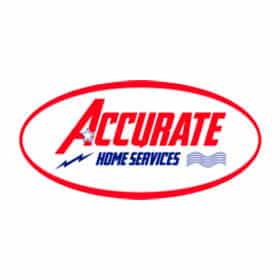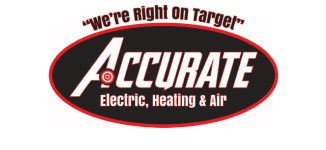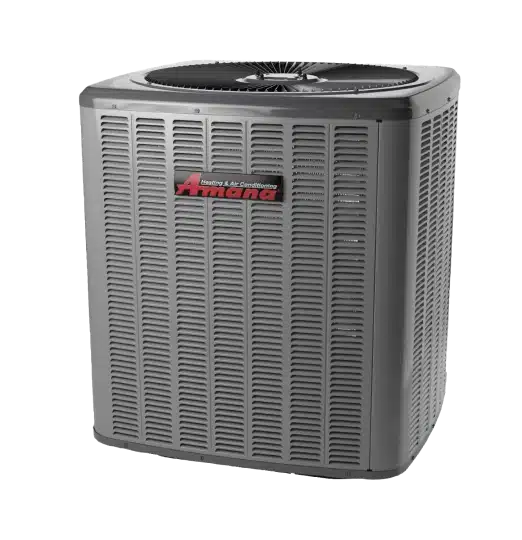An HVAC system maintains indoor temperatures in the dead of winter the same as they would be in summer. This year-round comfort is a hallmark of a well-maintained system, but sometimes, problems crop up. Fortunately, most HVAC problems are quickly resolved with prompt repair and timely maintenance. Still, you can prevent some, so let’s take a look at some of the most common HVAC systems and the preventative measures you can undertake.
A Frozen Evaporator Coil
Throughout the year, HVAC systems, with their capacity to stabilize home temperatures, get a lot of use. As a result, components like the air filters can get clogged with dust and detritus. When this happens, air cannot flow properly throughout the system, which cuts heat within the HVAC system. Without the needed internal heat, HVAC systems get incredibly cold, which leads to evaporator coil freeze-ups since any condensation on the coils will turn to ice.
The frozen coils sometimes cause a hissing sound, which you might notice, but the biggest indicator that you’ve got a problem will be that your air conditioner isn’t producing cold air anymore. You might also notice ice forming on the indoor or outdoor coils.
How to Prevent
Preventing frozen evaporator coils requires steady due diligence. Some of the best ways to do this are to clean your air filters, clean dust and debris from the vents, and have a professional check your system periodically for issues. This will prevent all underlying issues, making your evaporator coil far less likely to freeze during the cooling season.
Warm Air Output in the Summer and Cold Air Output in the Winter
Air conditioners that fail to receive the annual maintenance they need are more likely to push out warm air. That’s one reason we at Accurate Home Services recommend regular preventive maintenance. While the usual cause of improper output, or warm air, in the instance of cooling is caused by frozen evaporator coils, it’s not the only reason your HVAC system puts out the wrong temperature air. Your HVAC system might also blow out warm air if refrigerant levels are low.
- Clogged condensate lines
- Electrical issues
- Malfunctioning thermostats
Conversely, cool air in the warming season can have numerous causes. While some are the same or similar to those causing warm air during the cooling season, some are unique to modern furnaces.
- Clogged condensate lines
- Pilot light problems
- Faulty flame sensors
- Malfunctioning thermostats
- Poor gas supply
How to Prevent
For both types of problems, we suggest first checking whether your air filter is dirty. A dirty or clogged air filter can cause many issues with your HVAC system’s function. Also, check to see if the thermostat is set correctly. Your HVAC system will only supply properly conditioned air when set correctly.
After you have checked or replaced the filter as needed and adjusted the thermostat, if the HVAC system continues putting out the wrong temperature air, consult a professional HVAC technician, like the ones we have on staff at Accurate Home Services.
Expensive Utility Bills
HVAC, of course, isn’t free, but the costs associated with running your unit should be fairly stable throughout the cooling or heating season. If you notice that your power bills are increasing over time, you may have an HVAC problem. Like the other causes we outlined, this could be a clear sign that your system needs cleaning.
When your HVAC system is working extra hard to push air through a system clogged with dust, debris, and other loose materials, it needs more juice. This is when you’ll notice higher charges on your electric bill. Additionally, if your HVAC has poorly maintained components, these will also cause the system to overwork, increasing utility costs and the possibility of a complete breakdown, too.
How to Prevent
While cleaning and replacing components is a great step in the right direction when your utility bills increase, consider talking to an HVAC professional about your options. A professional can perform a yearly maintenance session on your system to verify if faulty components aren’t at fault. Depending on the age of your current system, we may suggest upgrading. As technology advances, so does efficiency. Modern systems could help you save significantly if your current HVAC is more than 12 to 15 years old.
Loud Operation
This is usually a sign of broken, loose, or ailing components. For example, a loud, hissing HVAC system is often the result of a refrigerant leak. This is due to the refrigerant gas escaping at high pressure through a small fissure in your HVAC system. Similarly, a clogged condensate drain line causes loud noises as the water struggles to pass through the system.
How to Prevent
With this, you will need a professional for repairs, but to prevent the situation altogether, we recommend regular maintenance. While this might seem like an all-too-typical answer, regular maintenance can help you avoid virtually all of the issues that could result in loud operation.
A Malfunctioning Thermostat
The thermostat is a little miracle invention that keeps your indoor areas at a near-constant temperature throughout the year. It shouldn’t be surprising that when it experiences problems, the rest of your comfort starts to suffer. Without a functional thermostat, your home will become too hot or cold, and your HVAC system will be unable to respond as designed.
Meanwhile, despite it not properly doing its job, the system may still overwork, which will increase your utility bills. Other problems with a poorly-working thermostat are short cycling in both the heating and cooling systems, wrong temperature readings, or reduced temperature control.
How to Fix
Sometimes, the thermostat may malfunction through one of the simplest causes: a dead battery. You can check this by looking at the display. If it’s blank or faint, then you may need to replace the battery. Your thermostat might have other problems or need to be replaced if the display is reading as expected. Contact one of our technicians at Accurate Home Services, and we can look at your thermostat to determine the cause of the problem.
Regular Maintenance Will Save You From a Lot of HVAC Headaches
As you might have noticed by now, a professional HVAC technician evaluating your system is a great way to prevent issues. We suggest getting professional HVAC maintenance at least twice a year, once in the spring and again in the fall, to ensure reliable operation. Having a tech evaluate your system, clean it, and resolve any potential issues before they become real problems can keep you comfortable year-round.
At Accurate Home Services, our team of licensed HVAC technicians understands the needs of the community and works with reliability as a guiding factor. We also provide electrical services, HVAC installation, indoor air quality services, duct cleaning, and whole-house fan services. Give us a call today, and we’ll provide a consultation so that you can cut off any HVAC issues before they happen!




